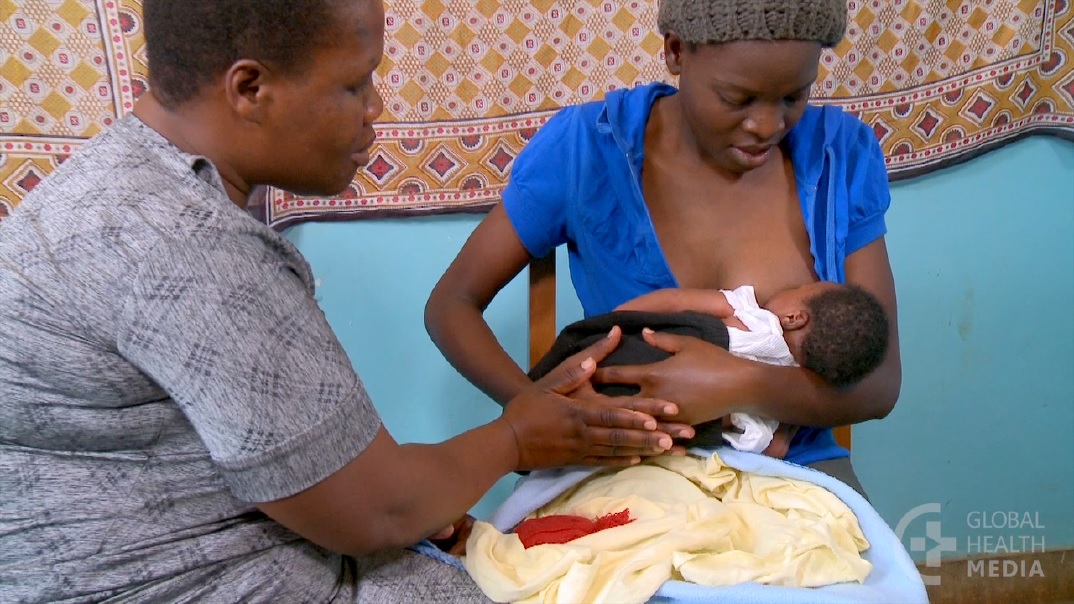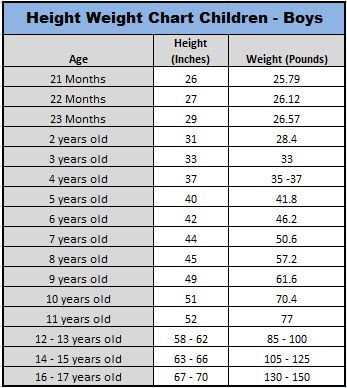How to deal with a mouthy child
How to Deal with Sassy & Mouthy Kids
Most kids go through phases where they are sassy, sarcastic, mouthy, or disrespectful. As a parent, it’s hard to know when to let it slide and when to address the problem. That’s why parents often ask me the following:
“How do you differentiate between disrespectful, sassy, or fresh language and abusive language?”
These behaviors are typically triggered by your child’s frustration, anger, and desire to get back at others when they think something is unfair. I believe that these behaviors are found on a continuum that I call the “inappropriate verbal response continuum.”
The extreme end of the continuum is verbal abuse. The middle is various forms of disrespect. And the mild end is annoying but not necessarily disrespectful behaviors.
This article will focus on how to handle kids in the middle and milder ends of the continuum. Nevertheless, I will begin by briefly discussing the extreme, verbal abuse end of the continuum.
The Special Case of Verbal Abuse
The extreme end of the inappropriate verbal response continuum is verbal abuse. Abusive language is generally a personal attack upon another person. It’s meant to hurt the other person and make them feel small and afraid. Verbal abuse often includes foul language and threats of violence designed to intimidate the other person to get them to give in.
Kids who use abusive language and behavior want to attack you so that they can control you. These kids often don’t care about consequences and are not intimidated by them. For these kids, abusive behavior has to be handled very clearly and sternly.
If your child’s behavior is verging on or has already entered into the verbal abuse stage, please refer to the following articles:
Kids Who Are Verbally Abusive: The Creation of a Defiant Child
How to Stop Threats and Verbal Abuse
Why Are Kids Disrespectful?
Parents often ask me why kids talk to adults in disrespectful ways? I believe children and teens do a lot of things because they don’t know how to express emotions appropriately. To make matters worse, they learn a lot from watching other kids and people around them who don’t know how to express themselves appropriately either.
To make matters worse, they learn a lot from watching other kids and people around them who don’t know how to express themselves appropriately either.
If your daughter is frustrated and doesn’t know how to show it, and she sees somebody else roll their eyes and make a face, she’ll absorb that lesson without even thinking about it. Then, the next time she’s frustrated at home, she’ll roll her eyes and make a face at you.
Don’t Overreact to Mild Disrespect
If she gets a reaction to her eye roll, that will often just reinforce the behavior because she knows she’s gotten to you. Don’t kid yourself: if you threaten your child by saying, “Don’t do that to me, young lady, or you’ll be grounded,” that will only make her do it more. Kids who act disrespectfully will not hesitate to push your buttons. It’s the one place in their young lives where they have actual power over someone.
When my son was in middle school, for some reason he went through a period where he said, “Yeah, right,” to everything in a sarcastic way. I responded to him once or twice, and the conversation went like this:
I responded to him once or twice, and the conversation went like this:
Me: “Please remember to put your clothes away.”
My son: “Yeah, right.” (with sarcasm)
Me: “Is something wrong? Why are you using that tone with me?”
My son: “What tone? I don’t know what you mean.”
Me: “I just don’t like the way you’re talking to me. The way you say ‘yeah, right’ sarcastically. Try to talk better.”
My son: “Yeah, right.” (with sarcasm)
His final response to me was disrespectful, but also a bit clever and funny in a teenager sort of way. I became a little frustrated and annoyed, but I also knew better than to show it. I didn’t want to empower that behavior—or necessarily stifle it. Instead, my wife and I allied ourselves together and were able to laugh it off. And, eventually, it wore itself out.
And that’s the important thing to remember here. If you respond to mildly annoying behavior in a strong way repeatedly, you give it power and strength. As your child gets into adolescence, they’ll start to find ways to push your buttons. And when you confront them, they’ll say very innocently, “What did I say? What did I do?”
And when you confront them, they’ll say very innocently, “What did I say? What did I do?”
I personally think that the less you challenge mildly disrespectful behavior, the less you give it power. Remember, the less power you give it, the more it’s going to die its natural death. That process is called “extinction” in psychology.
If you don’t respond to a behavior and give it power, the more likely that it will become extinct. It’s going to die out like the dinosaurs. But if you feed the behavior and play with it, you’ll only nurture the disrespect.
Keep in mind that if you suddenly stop responding to the behavior, they’ll initially use it more often in an attempt to get it to work again. This is normal and is a sort of last gasp before the behavior dies.
In my opinion, the worst thing you can do is challenge it inconsistently. Let’s say sometimes you let it slide, and then sometimes you confront your child. When you do that, those behaviors tend to become more entrenched. I understand that many times it’s not easy to ignore mildly disrespectful behavior. That’s why I think it’s helpful to vent to your spouse, a friend, or a relative about it.
I understand that many times it’s not easy to ignore mildly disrespectful behavior. That’s why I think it’s helpful to vent to your spouse, a friend, or a relative about it.
How to Respond to Your Child’s Sarcasm
In the middle of the inappropriate verbal response continuum is sarcasm. Kids generally manifest this in two ways. They either (1) make sarcastic comments when they feel under pressure, or (2) they use chronic sarcasm as a way to manage their angry feelings safely. By safely, I mean it’s safer to show their anger through sarcasm than it is through any other means they’ve learned.
Usually, sarcasm is learned and modeled by adults. For example, when adults are upset at their kid’s performance, they may make sarcastic comments. These comments are hurtful, and kids develop a defense to it by becoming sarcastic themselves. You’ll see kids who are cynical and sarcastic using that language in all areas of their life. Its function is to help them deflect any blame while downloading a piece of anger onto the person who’s the target.
Therefore, part of the response to sarcasm in kids is for the adults to speak differently. Personally, I think it’s funny when a comedian uses sarcastic humor, but it’s not funny when a child or an adult talks to me that way. It’s belittling and inappropriate. And it hurts healthy and honest communication.
Healthy Communication With Your Child is Paramount
All these mechanisms—sarcasm, disrespect, sassy talk—hurt communication. When you see this behavior, you have to ask yourself, “What’s being communicated that’s making my child respond that way?”
It’s usually not hard to discover what your child is threatened by that leads to sarcasm. Sometimes it’s a secret, sometimes it’s a task they haven’t completed, and sometimes it’s a power struggle. Whatever it is, once you’ve identified it, it becomes much easier to defuse.
When your child is using sarcasm, I think an effective thing to do is ask exactly what is going on:
“How come you get sarcastic whenever we talk about your homework?”
Asking in this manner is effective because it both identifies the issue and puts your child on the spot.
If your child then says, “I don’t get sarcastic when I talk about homework,” then say:
“Fine, then let’s keep going. I expect you not to be sarcastic.”
Or, if your child says, “I get sarcastic because you don’t understand,” you can say:
“It’s your job to make me understand. And sarcasm doesn’t help.”
Another very powerful way to respond to sarcasm is to simply say:
“Don’t talk to me that way; I don’t like it.”
And then turn around and walk away. When you walk away, you take all the power out of the room with you. If you argue or try to make a point, you’re giving your child more power.
Of course, simply saying “Don’t be sarcastic” is an appropriate response and is useful as a reminder to your child, but it doesn’t get to the heart of the matter the way that more pointed questions do.
What to Do When Your Child Uses Sarcasm With Siblings
When your kids use this kind of language with each other, I know it’s hard as a parent to stay out of it. But you may be surprised to hear that I think you have to try. Your kids need to learn how to stand up for themselves.
But you may be surprised to hear that I think you have to try. Your kids need to learn how to stand up for themselves.
Believe me, they’re going to get it in the schoolyard, on the school bus, or in the classroom. No matter what, they will have to deal with it. That doesn’t make it right, and it doesn’t make it good. But the bottom line is that they need to build up a callous to these kinds of comments.
Think of it this way: at the beginning of the summer, using a shovel hurts. You get blisters, and your hands are sore and tender. After a while, they get calloused, and then they don’t hurt anymore. That’s exactly what you want your kids to do with mildly sarcastic comments.
When something rubs your child the wrong way, try not to jump in there unless something is being said that’s abusive, disgusting, or demeaning. If that’s happening and your child escalates, intervene immediately and pull that child aside. Give them a choice of two things at that time: to either change their language or be removed from the group.
Calling your child aside is important because often the embarrassment of being corrected in front of other kids can cause them to escalate even further. Is it the end of the world if you give your child a consequence in front of the other kids? No, but I think those things are best dealt with privately. If your goal is to get them to change their behavior, separating them from others gives them a better chance of hearing what you’re saying.
Ignore Annoying Behaviors That Are Harmless
Things that are not personal attacks or which are not meant to demean you can be handled by just trying to ignore them.
It’s easy and natural to become irritated when your kid says, “Duh! Nice one, Mom,” or “Duh.” This is where you have to draw the line between what kind of disrespect requires your attention and what doesn’t. “Planned ignoring” is the key here. Planned ignoring is the concept where you decide consciously to ignore attention-seeking behaviors as long as they’re not overtly harmful or abusive to others.
This is tricky because there are also terms that might be considered mild by some but which are actually put-downs that I believe you need to address. For example, when your child says, “That’s stupid,” to you, make no mistake—he means you’re stupid.
And by the way, when you tell your child, “That’s stupid,” and they say, “Don’t call me stupid,” you should apologize. If you say, “Well, I didn’t say you were stupid, I said the behavior was stupid,” your child is going to see right through that. Parent mistakes like this are an excellent opportunity to model an honest apology to show your child how to take responsibility for a mistake.
My advice is, don’t use the word “stupid” in a sentence when you’re dealing with your child unless you want them to feel stupid. There are plenty of other words that are not demeaning. And by the same token, if your child says, “That’s stupid,” you don’t have to say, “Are you calling me stupid?” You can just say very clearly:
“There’s no name-calling in this house. ”
”
I believe there should be a consequence for name-calling. Set limits on it very clearly and hold your child accountable. Every time they say the word “stupid” to someone in the family, for example, they go to bed 15 minutes earlier or have 15 minutes less electronics time. They should be held accountable.
What to Do When Your Child Says, “Do It Yourself”
When you ask your child to do something, and they come back with “Do it yourself,” I think your response should be very clear:
“I’m not going to do it myself. I told you to do it, and you will have the following consequence until you do it.”
For younger kids, you might take away a toy until they’ve complied. For older kids, you might take away video games, TV, or their phone. In the Total Transformation Program®, I call this technique “stop the show.”
If your child gets rude and says, “I’m not going to do it; this isn’t my chore,” you can say:
“Well, I asked you to do it, and I want you to do it now.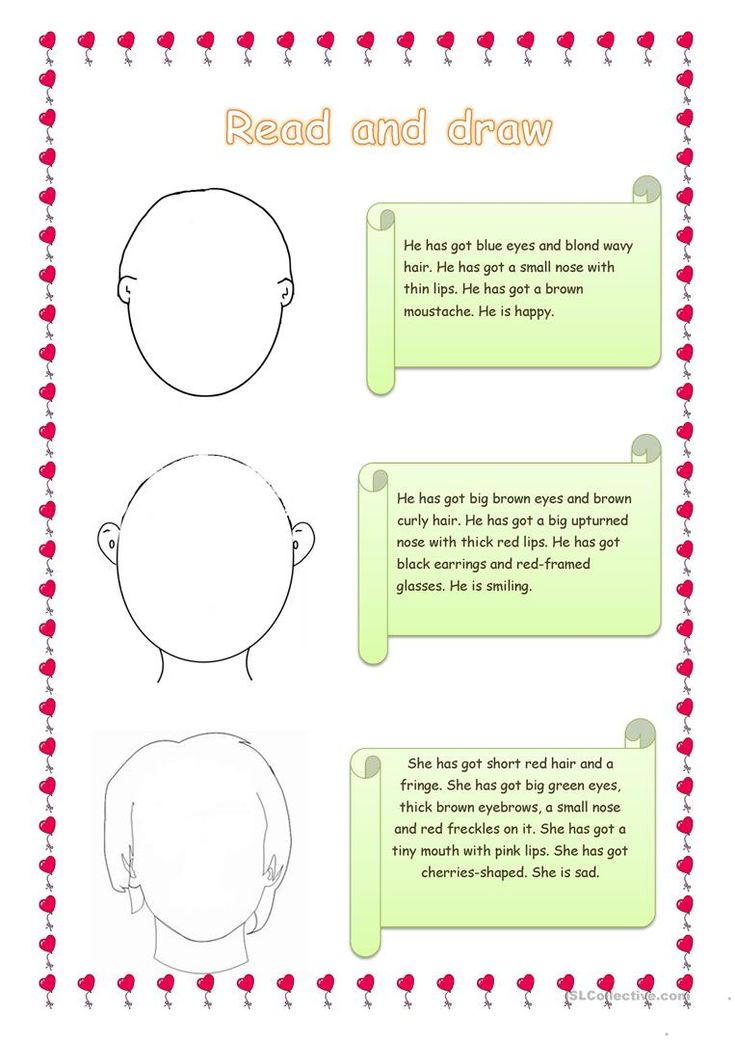 ”
”
Don’t get into an argument about whose chore it is. If the non-compliance persists, then the show stops. In other words, whatever your child is doing is over for the time being. Have your child take a seat in their room without any outside stimulation such as electronics.
Understand that when kids get over-stimulated, they get stuck. So the first step in getting them unstuck is to avoid stimulating them by demanding things. Start by taking away all the stimuli that you can. Sending them to their rooms and shutting off electronics really helps.
Research shows that after three minutes with no stimulation, your child’s body slows down. So wait for a few minutes and then go in and talk with them. Don’t say, “Do you want to talk about it?” Sometimes we ask kids questions when we don’t really want them to make a decision. Instead, say to them:
“Let’s talk about this. I asked you to mow the lawn. You won’t be able to come out of your room until you agree to do it.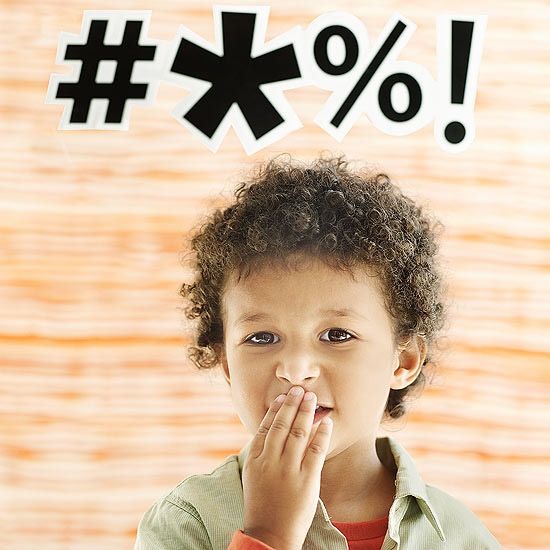 Would you like to do it now, or do you want to stay in your room a little longer?”
Would you like to do it now, or do you want to stay in your room a little longer?”
And if they say, “No, I’m not doing it,” then say,
“Okay, let me know when you’re ready.”
And leave the room. If they want their privileges back, they will comply eventually.
What to Do When Kids Are Fresh in Public
These days, adolescents have less fear of being sassy, mouthy, or disrespectful to their parents and other adults in public. I think if they’re acting that way in public, then you can correct them in public. Say:
“Don’t talk to me that way; I don’t like it.”
If the rude attitude doesn’t stop, then take them to the car.
If your child is smart-alecky to other adults, you can use the same technique. Say:
“Don’t talk to Mrs. Smith that way; I don’t like it.”
If your child persists, you can say:
“Let’s go. Goodbye, Mrs. Smith.”
Then take your child and leave. By the way, if it’s another parent’s child being rude to you, I still think you can say,
“Don’t talk to me that way, Tommy, I don’t like it.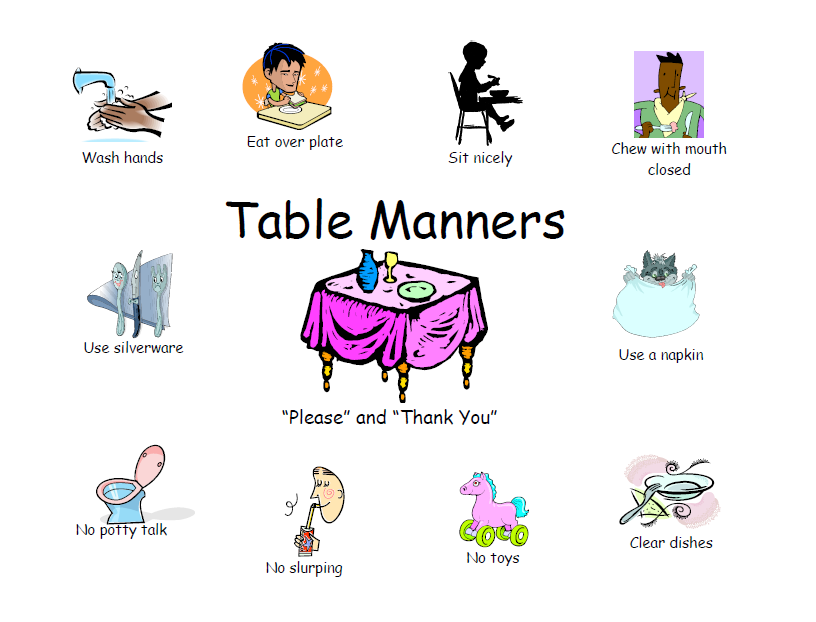 ”
”
Then turn away from them. Use simple, matter-of-fact language. Have a serious look on your face. You don’t have to look mean or angry, but don’t look like you’re cracking a joke either.
By the way, I don’t believe in giving your child a second or third chance when they’re nasty or rude to you. I think this creates bad habits in kids. From the time you start giving them chances, your child will say to themselves, “Well, the first one is free, so I won’t get in trouble if I call my mom a name.” I know it may be heartbreaking not to give your child a second chance, but that’s the best way for them to learn.
How to Respond to Your "Mouthy" Child
You've seen this: other people's kids are acting up, being "fresh" or "mouthy." Their parents are pulled into a vortex of embarrassment and helplessness. Meanwhile you — safely perched on the sidelines — are watching an entirely different channel of reality TV.
What you see is a child's clear desire to assert his or her independence, albeit with the grace of a, well, OK, with no grace at all.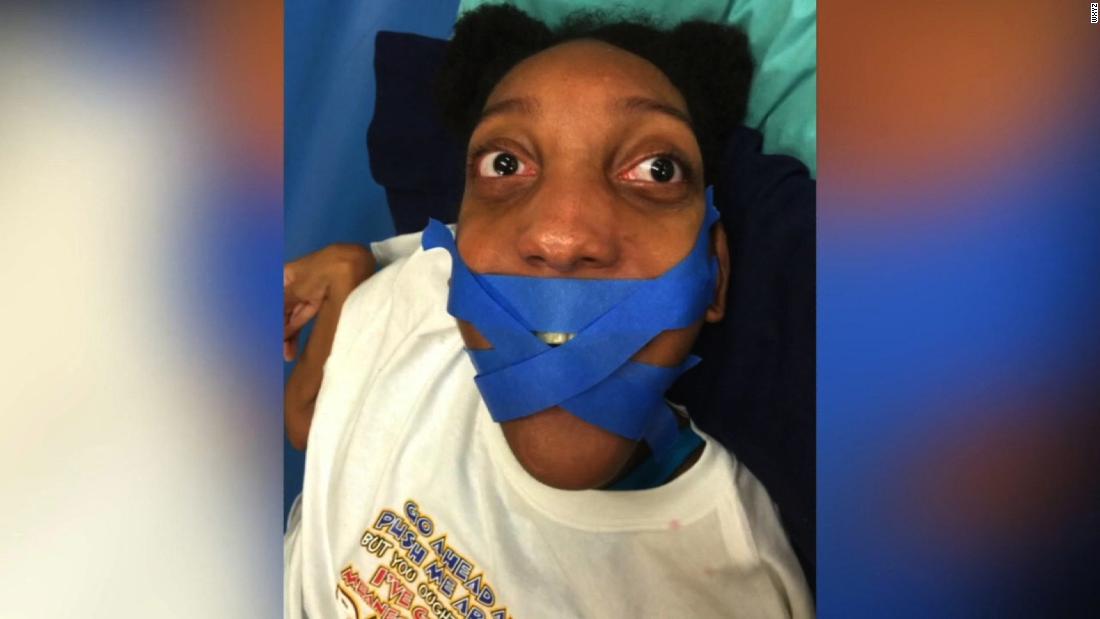 But that parent? That parent is caught in what I like to call the "gotcha" moment. That's when a child's apparent disrespect, back-talking or entitlement has pushed their parent's buttons, and pushed them good.
But that parent? That parent is caught in what I like to call the "gotcha" moment. That's when a child's apparent disrespect, back-talking or entitlement has pushed their parent's buttons, and pushed them good.
In "gotcha" mode, it is very hard for parents to show grace. How can they when a pint-sized intruder has invaded and dishonored their sense of all that is right and good? It's not our shining moment either.
Why do kids get mouthy and what can we do about it (that we won't feel bad about later)? The first thing is to enter a mindset shift. I recently heard children described as diplomats from a foreign land that don't yet understand the ways of our people. How apt.
Typically, the mouthiness that parents object to is kids saying what they really feel — the value of which I think we can all agree on — with the unfortunate hitch of having only novice skills in the fine art of delivery. Your child may be feeling disappointment or frustration and not know how to show it in a way that enlists your support.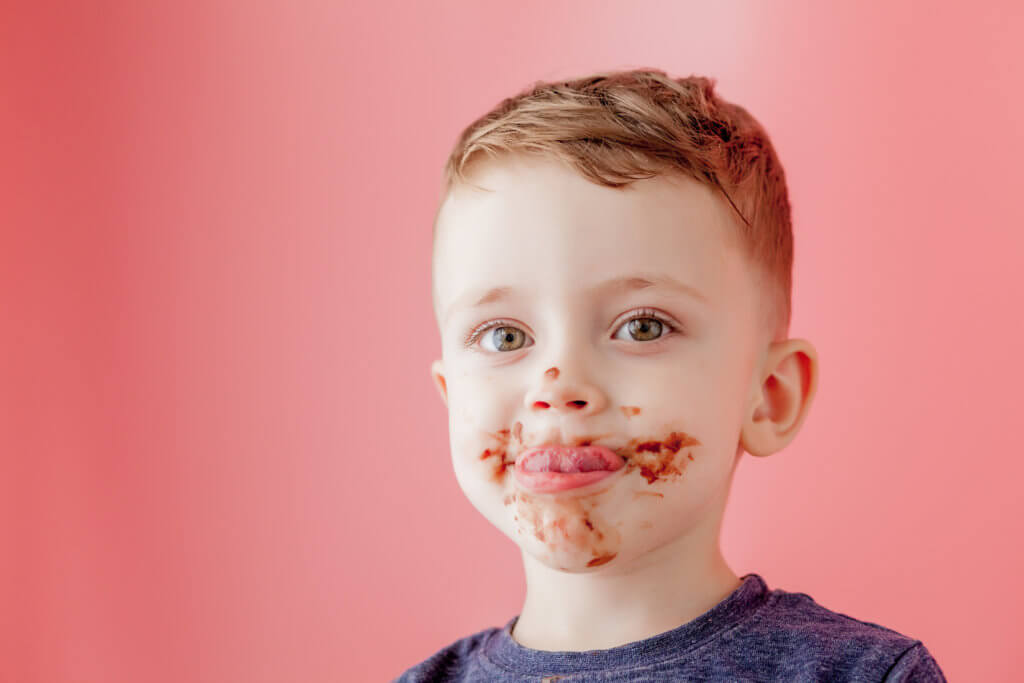
"We never do anything fun," for example, might translate to something far less bratty, like, "I'd really like to go to the movies, even though no one else in the family likes it as much as I do, can I have a say this time?"
Your intention in responding to your child's less-than-ideal expressions should be to focus on the big picture and not on the particular words your child has chosen. Certainly you still need to make the expectations for respectful behavior clear, but rather than immediately chase down every sassy comment with a consequence, what if you instead gave your child a second chance to fix their misstep?
When parents under-react strategically, they shape a new behavior that summons their child's best self. Here are some handy lines to give your child the opportunity to learn to be the best version of themself and to speak as seasoned diplomats.
Can you try that one again, please?
You are giving your child the chance to catch the error they made by themself and rephrase their point. Then, no harm, no foul. Instead of overreacting to insensitivity with your own, you get to see that your child really does get it.
Then, no harm, no foul. Instead of overreacting to insensitivity with your own, you get to see that your child really does get it.
What do you think I'm going to say here?
Give them the chance to guess all by themselves what they need to fix. Everyone will be better off because of it.
Is this really what you want to be saying/doing right now?
This phrase overlooks the badness of what just happened, and aside from not being insulting, you're giving your child the power to fix what they said.
What you really wanted to say, but couldn't...
This is my favorite strategy: to speak for my children (or husband, or cats) restating what they are saying including the better intention which was missing in the first draft. So when I'm bringing in the groceries and my daughter greets me with — "What? You didn't get chips?!?" — I say, "Mom, thank you so much for going grocery shopping on your day off, you are the best mom ever, but I'm just wondering if you happened to, with all the other things on your mind, get the chips I wanted.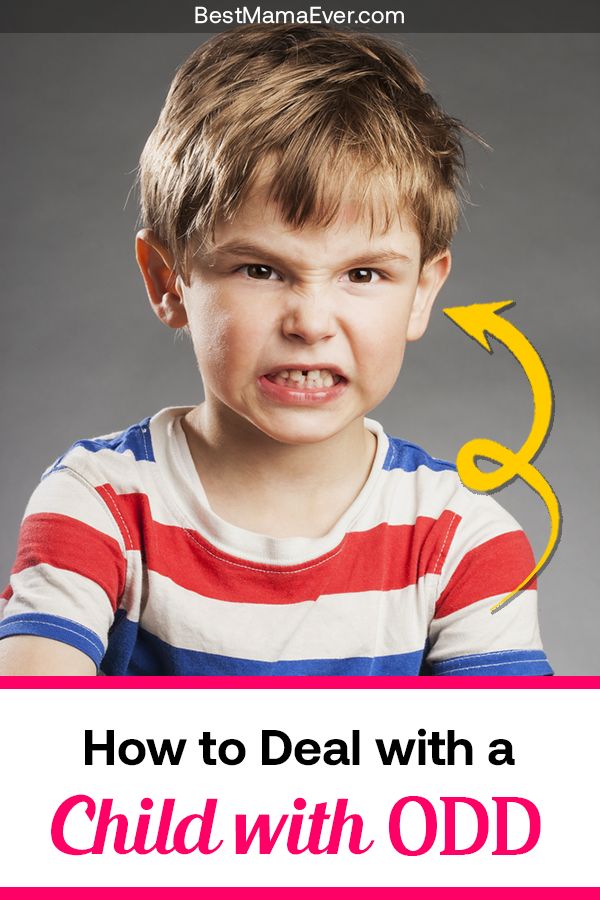 "
"
We both get what we need — I hear what I want, and my daughter gets a script and a second chance. We share an understanding (and usually a smile) and we move on.
Of course the success of this strategy, and really all of these, is that you have to be sincere, and have no hard feelings. A slight glint of the eye helps.
Essentially you are sashaying past the unfortunate choice of words rather than pulling over, parking your car and shining your headlights on it.
One of the best ways to teach your child about flexibility is by demonstrating your own. This is what the fine art of diplomacy really sounds like. Because in the end, if you sound like a brat while correcting your child from sounding like a brat, well, Houston, we've got problems.
Language is power. So what do you do with mouthy children? Love them. And seize the opportunity to teach them how to use their power to get what they really want — to be understood.
©2015 Tamar Chansky, Ph.D. Previously published on Newsworks. org
org
If you liked this post, please share it!
For more ideas like these, please check out my books including: Freeing Your Child from Anxiety and Freeing Your Child from Negative Thinking
Talking bird: 3 reasons for increased talkativeness in a child
Education
- Photo
- KatarzynaBialasiewicz/Getty Images/iStockphoto
psychologist
... does not possess, but is aware in the same way as other children of his age. Nevertheless, the “talker” is very fond of expressing his opinions, giving advice, persuading, simply retelling stories. nine0003
Of course, no one usually considers such behavior a problem. Well, except perhaps the parents who are simply tired of this kind of activity: “We can’t talk at home without the child interfering. He will comment on any topic, discuss, interrupt to tell something of his own.” And intuitively they often react to it very simply - they don’t notice: “I found a way to“ communicate ”- not to listen, but to nod and insert “uh-huh” from time to time. But I sympathize with kindergarten teachers. It’s not easy for them, probably, with my child - he doesn’t let anyone say a word. ” You should not worry about the educators - they have their own methods of work. But parents must listen to their child. At least in order to understand the reasons for such increased speech activity.
He will comment on any topic, discuss, interrupt to tell something of his own.” And intuitively they often react to it very simply - they don’t notice: “I found a way to“ communicate ”- not to listen, but to nod and insert “uh-huh” from time to time. But I sympathize with kindergarten teachers. It’s not easy for them, probably, with my child - he doesn’t let anyone say a word. ” You should not worry about the educators - they have their own methods of work. But parents must listen to their child. At least in order to understand the reasons for such increased speech activity.
Chatting like an adult It was funny to watch them interact. Anton only had time to ask, “What is it?” And Pasha didn’t stop talking anymore. “What a smart guy you have,” said a friend. - And Anton is with us - 'why', constantly pestering with questions. Pasha, having heard, immediately ran up to us: “But I’m not a why, but because. I know everything myself." I even felt a little embarrassed for such indiscretion.
 But, on the other hand, he answered well - like an adult. nine0024
But, on the other hand, he answered well - like an adult. nine0024 Anna, mother of Pavel, 6 years old and Masha, 3 years old
Very often, it is for the eldest child in the family that such a model of behavior - not asking a lot, but being ready to answer - becomes the norm. Primary school teachers always "calculate" children who have younger brothers and sisters: older ones are more courageous in class, communicate more readily with teachers and classmates. Their problem is inattention and inability to concentrate when you need to listen. They constantly strive to control what is happening, pay attention to others, instead of doing only their own business. nine0003
Pasha, the same "because" doesn't really like to draw. But when the whole group draws, they always comment on the drawings of their neighbors, advise which pencil to take, criticize or, conversely, praise. The most unpleasant thing for him is the teacher's demand to observe absolute silence.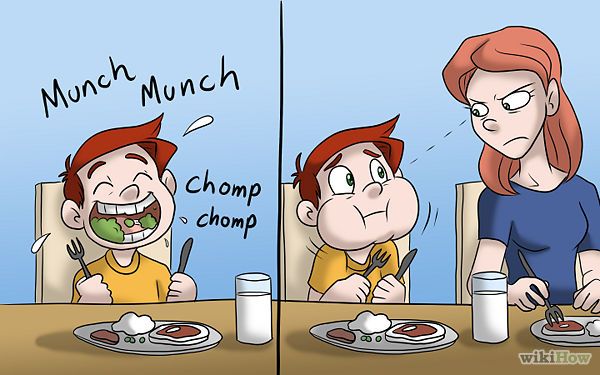 Often this desire to control others persists for life. A person feels his responsibility even for something to which he is not directly related. By the way, this is possible not only with the appearance of younger children. It happens that the only child in the family is brought up with such an attitude. It’s just that parents like it when he behaves like an adult, and they support and develop such qualities as prudence, awareness of actions, interest in adult topics, devote him to problem situations at work, in his personal life, even change roles (“What a good fellow you are you can calm me down!"). Cultivate the theme "you're an adult" is not worth it. The right to behave like a child should remain with him according to his age. nine0003
Often this desire to control others persists for life. A person feels his responsibility even for something to which he is not directly related. By the way, this is possible not only with the appearance of younger children. It happens that the only child in the family is brought up with such an attitude. It’s just that parents like it when he behaves like an adult, and they support and develop such qualities as prudence, awareness of actions, interest in adult topics, devote him to problem situations at work, in his personal life, even change roles (“What a good fellow you are you can calm me down!"). Cultivate the theme "you're an adult" is not worth it. The right to behave like a child should remain with him according to his age. nine0003
Increased speech activity is more common in older children in the family. After all, even if the age difference is small, they have to take on the role of an adult and behave accordingly: “Calm down your sister, think of something”, “Tell her why you can’t do this, you’re already big”, “You are older, could don't ask such questions. "
"
- Photo
- PORTRA ehf/Getty Images/Digital Vision
Chatting to calm down
“Ira only once asked what happened to the dog, why she was taken to the hospital. I remember saying that I couldn’t talk about it yet - I was too upset myself. Then she thought about how to tell everything so that her daughter would not be too worried, but she saw that she did not remember it at all. He behaves very lively, constantly comes up with some kind of fable, talks about what happened in the kindergarten. How surprised I was later when the teacher showed me her drawing on the theme “Animals”: a sick, bandaged dog with closed eyes. Apparently, my daughter is still worried, but she doesn’t tell me. ” nine0024
Polina, Ira's mother, 5 years old
Anxious children can be too talkative - this is their way of calming down, feeling confident.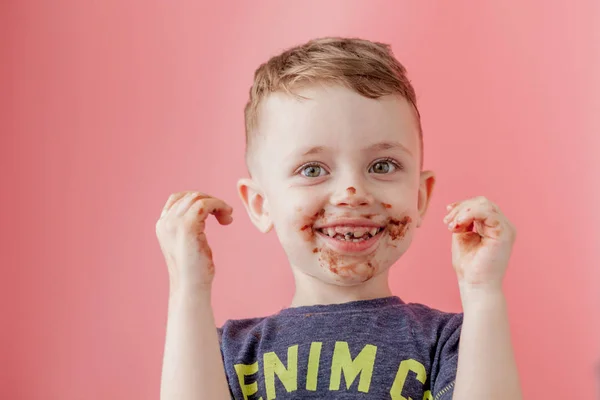 Actually, adults in a state of anxiety often behave the same way - they talk a lot and on various topics, turn on the TV, discuss events. But in adults, we see this connection, we understand what the increased need for speech is connected with (“I want to be distracted, not to think about the past or upcoming event”). As for the child, another behavior seems understandable. Sad, silent, asking questions about what worries him - that would mean anxiety. And if he speaks without ceasing, on a variety of topics, then, probably, everything is in order. Yes, but... Is it possible that the child has already behaved as we expect? He was already silent and asked anxious questions. It's just that no one calmed him down and supported him. nine0003
Actually, adults in a state of anxiety often behave the same way - they talk a lot and on various topics, turn on the TV, discuss events. But in adults, we see this connection, we understand what the increased need for speech is connected with (“I want to be distracted, not to think about the past or upcoming event”). As for the child, another behavior seems understandable. Sad, silent, asking questions about what worries him - that would mean anxiety. And if he speaks without ceasing, on a variety of topics, then, probably, everything is in order. Yes, but... Is it possible that the child has already behaved as we expect? He was already silent and asked anxious questions. It's just that no one calmed him down and supported him. nine0003
It is difficult to say in advance which of the children in such a situation will be silent, withdraw into themselves, and which, on the contrary, will talk too much. But it is always possible to understand by speech that the child is anxious. He tries to speak without pauses, sometimes in such a way that it is difficult to notice the transition from one topic to another.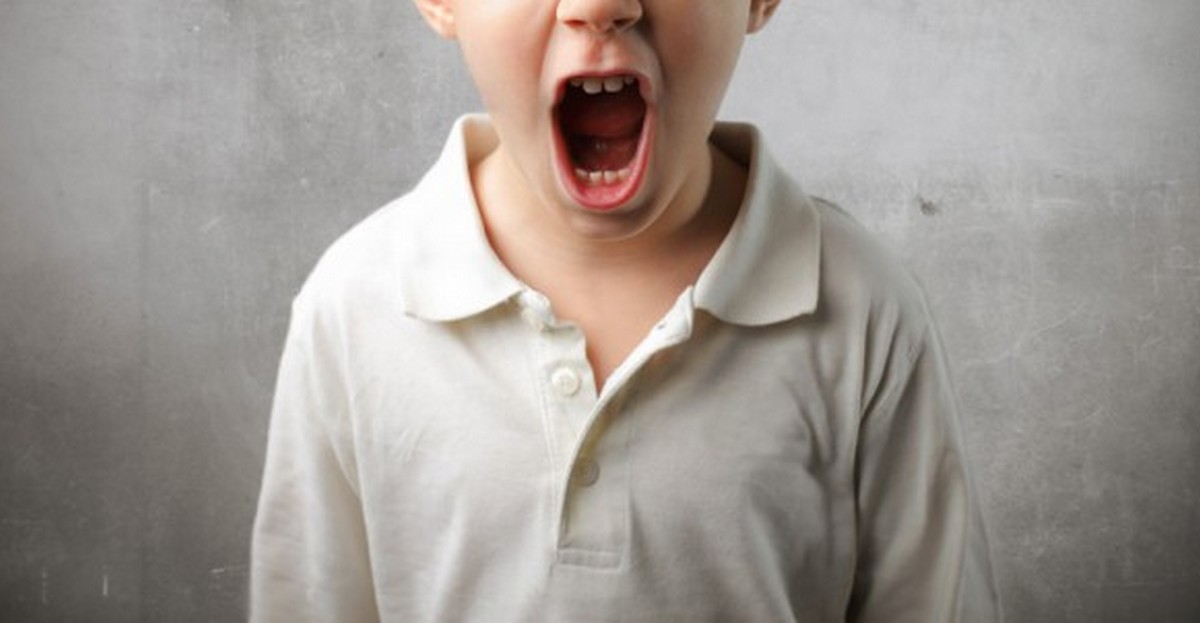 He mixes reality and fiction, comes up with sequels. He tries not to ask questions, but at the same time wants to constantly hold the attention of an adult ("Yes, Mom?"). At the same time, the state is energetic, even excited, so parents often urge the child to just keep quiet, go about their business, or try to switch to quiet activities. In fact, the child just needs to be reassured, inspired with the feeling that “everything will be fine” and made it clear that adults themselves will take care of everything. nine0003
He mixes reality and fiction, comes up with sequels. He tries not to ask questions, but at the same time wants to constantly hold the attention of an adult ("Yes, Mom?"). At the same time, the state is energetic, even excited, so parents often urge the child to just keep quiet, go about their business, or try to switch to quiet activities. In fact, the child just needs to be reassured, inspired with the feeling that “everything will be fine” and made it clear that adults themselves will take care of everything. nine0003
Talkativeness can be a way for a child to hide their insecurity, depression or anxiety. Discuss disturbing or incomprehensible topics with him, while paying increased attention to his feelings and ideas!
- Photo
- Camille Tokerud/Getty Images/Stone RF
Talkativeness as a sign of hyperactivity
“We are used to the fact that the child talks incessantly. Well, maybe this is the character or heredity (by the way, I also like to chat). But when Matvey went to first grade, problems began. “He doesn’t know how to be silent at all,” the teacher said, “he even starts to feel bad.” She advised classes in the theater studio. Now the situation is much better. There is no fatigue, no headache after class, and the mood is good. And the son is quite adequate about the need to be silent, he may well sit quietly for a whole lesson. nine0024
Well, maybe this is the character or heredity (by the way, I also like to chat). But when Matvey went to first grade, problems began. “He doesn’t know how to be silent at all,” the teacher said, “he even starts to feel bad.” She advised classes in the theater studio. Now the situation is much better. There is no fatigue, no headache after class, and the mood is good. And the son is quite adequate about the need to be silent, he may well sit quietly for a whole lesson. nine0024
Veronika, mother of Matvey, 7 years old
Hyperactive children also talk a lot, and other signs of hyperactivity may not be so noticeable. For example, a child who is constantly reprimanded, punished for bad behavior, can learn to restrain himself and then directs all his energy to what remains available - to speech. Adults are usually satisfied, believing that hyperactivity has been dealt with. At the same time, talkativeness in itself usually does not bother. nine0003
The hyperactive child's speech is very inconsistent. He jumps from one topic to another, easily distracted. It is difficult for him to listen to himself, therefore, even after asking a question, he begins to interrupt or argue. In general, his speech is often similar to an argument: he describes an ordinary event in a raised voice, assertively, even aggressively. Peers may be afraid of such a child, even if he does not fight - speech is perceived as too conflicting. If the parents ask you to be quiet, the child will most likely still talk, at least to himself. For example, he will look out the window and comment aloud on everything that happens there. Parents of such a child should first of all follow their own speech, because hyperactivity is very often a problem for the whole family. Adults in the same way, in raised tones, speak, constantly express claims, dissatisfaction, comment on everything that happens around. It can be difficult for them to change their behavior, but this is the main condition for reducing speech hyperactivity in a child.
He jumps from one topic to another, easily distracted. It is difficult for him to listen to himself, therefore, even after asking a question, he begins to interrupt or argue. In general, his speech is often similar to an argument: he describes an ordinary event in a raised voice, assertively, even aggressively. Peers may be afraid of such a child, even if he does not fight - speech is perceived as too conflicting. If the parents ask you to be quiet, the child will most likely still talk, at least to himself. For example, he will look out the window and comment aloud on everything that happens there. Parents of such a child should first of all follow their own speech, because hyperactivity is very often a problem for the whole family. Adults in the same way, in raised tones, speak, constantly express claims, dissatisfaction, comment on everything that happens around. It can be difficult for them to change their behavior, but this is the main condition for reducing speech hyperactivity in a child. nine0003
nine0003
More useful materials for parents about raising children - in our channel on Yandex.Zen.
Daria Veitsler, Svetlana Ievleva
Talkative child. What are the features of education and communication?
1 Talkative child: what is he like
2 How to raise talkative kids
3 How can parents cope with excessive talkativeness of the child? nine0003
four Advantages and disadvantages
Is there an overly talkative child in the family? He almost never stops talking, all the time he says something, mutters and argues. What should parents and others do? Is it good or bad when the baby is too talkative?
If this topic interests you, read the article further. We will help you understand the causes of excessive talkativeness, tell you how to behave with such children and what techniques will help reduce the verbal flow. nine0003
nine0003
Talkative child: what is he like
A talkative child usually does not ask many questions. He knows the answers to all questions and will gladly tell them to everyone who wants to listen (and to those who don't, too). And it’s not a problem for him to compose questions on the go.
It quickly becomes clear to outsiders that the talker does not have fundamental knowledge in any area, but simply starts to think, which he immediately voices.
Many parents encourage talkativeness and never stop the kid in reasoning, perceiving everything said with tenderness and joy. Parents should listen to their son or daughter.
And not just pretend and nod from time to time, say “aha”, “mm”, “ooh”. Namely, listen and understand the meaning of what was said. If only because, to understand the train of thought of the baby and the reason for talkativeness.
Chatty children are not afraid of public speaking, willingly answer the questions of kindergarten teachers and teachers at school. Talented speakers, actors, television and radio hosts often grow out of talkative children. They have, as it is customary to say in society, “a hung tongue”, it is easy for them to speak constantly and on any topic. nine0003
Talented speakers, actors, television and radio hosts often grow out of talkative children. They have, as it is customary to say in society, “a hung tongue”, it is easy for them to speak constantly and on any topic. nine0003
Talkative children grow up to be talkative adults only if they don't experience some kind of embarrassment that silences them.
The reasons for the termination of talkativeness may be bullying or public exposure of the talker in incompetence. Such cases hurt the psyche and cause isolation.
Often, as a result of observation of talkative children, mental deviations or nervous diseases are detected in the early stages. nine0003
In any case, it is not always a habit to constantly say to serve the child in good service.
Raising Talkative Babies
Parents of talkers do not always understand how to properly raise talkative kids. It seems that there is nothing wrong with the fact that the child constantly tells something.
But some parents find this behavior disturbing and tiring. The baby starts talking as soon as he wakes up, and stops only when he falls asleep. He constantly intervenes in the conversations of adults and other children, interrupts, does not listen, imposes his opinion and convinces that he is right. nine0003
How should parents behave? First of all, understand why the child is constantly talking. It happens that the baby is only learning to communicate, learning to formulate words and sentences, trying to ask questions, come up with answers to them. And this process, apparently, he really likes.
The kid copies the behavior of adults: he pretends to be talking on the phone, spins in front of the mirror, talking to an imaginary interlocutor, animatedly talks about something to the toys in the absence of other listeners. nine0003
All this takes place in a calm environment, nothing irritates or disturbs the child. He talks about his affairs and describes what is happening, sometimes he says frankly invented things, but they do not go beyond the bounds of reason.
Another thing is when excessive talkativeness is caused by anxiety, fear and acts as a protective reaction of the body. This behavior can be recognized by the nature and frequency of questions asked, impulsive speech, excessive gesticulation, and uncontrollable emotions. nine0003
In addition, if a child used to talk a lot and then fell silent, parents should also be alerted. This can be an indicator of psychological trauma, fear, anxiety.
Communication should be taught from an early age. A talkative child needs to be explained that he alone cannot always speak. Everyone should have the right to speak and listen to others. The balance of talkativeness must be observed by all members of the family in which the talkative baby grows.
A child should not be abruptly interrupted during his monologue. You should gently stop him, draw attention to yourself and say what you need. nine0003
How can parents cope with their child's excessive talkativeness?
How can parents cope with their child's excessive talkativeness and teach him to listen to others? Indeed, over time, talkativeness can develop into problems with communication at different levels.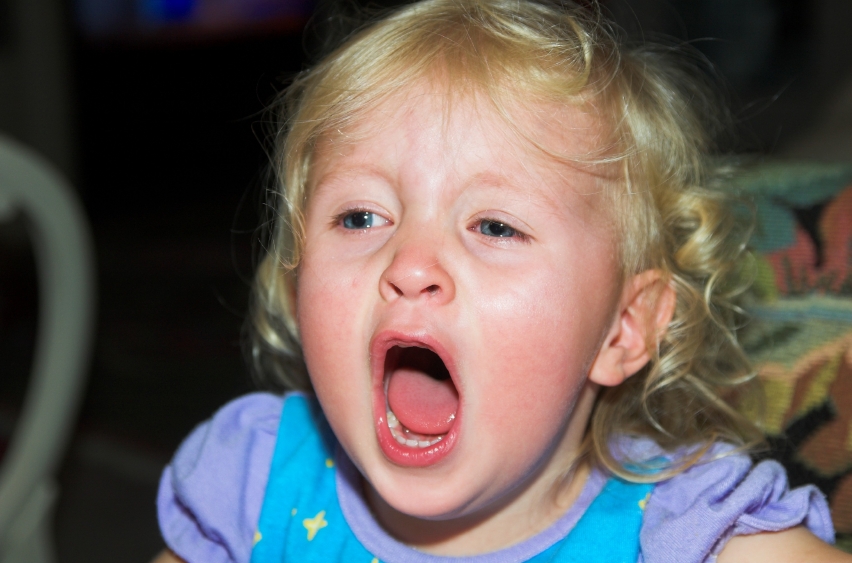
Peers and other children will avoid playing and talking together, as they do not want to listen to one person. Educators and teachers will spend most of the classes on pacifying the talker, which will negatively affect the learning process. nine0003
To avoid difficult situations, you should follow some rules in raising a talkative child:
- You can not call the baby a talker, talker and other similar words. This offends the child and reduces self-esteem. Perhaps he simply does not close himself and shares experiences and sensations. Criticism can silence him.
- Do not interfere with the child's statements. The kid should understand that talking about his feelings and experiences is normal, that locking in himself only leads to negative emotions. Be the first to speak, ask your child questions and listen to the answers. nine0180
- Teach your child to say only what is acceptable to tell others.
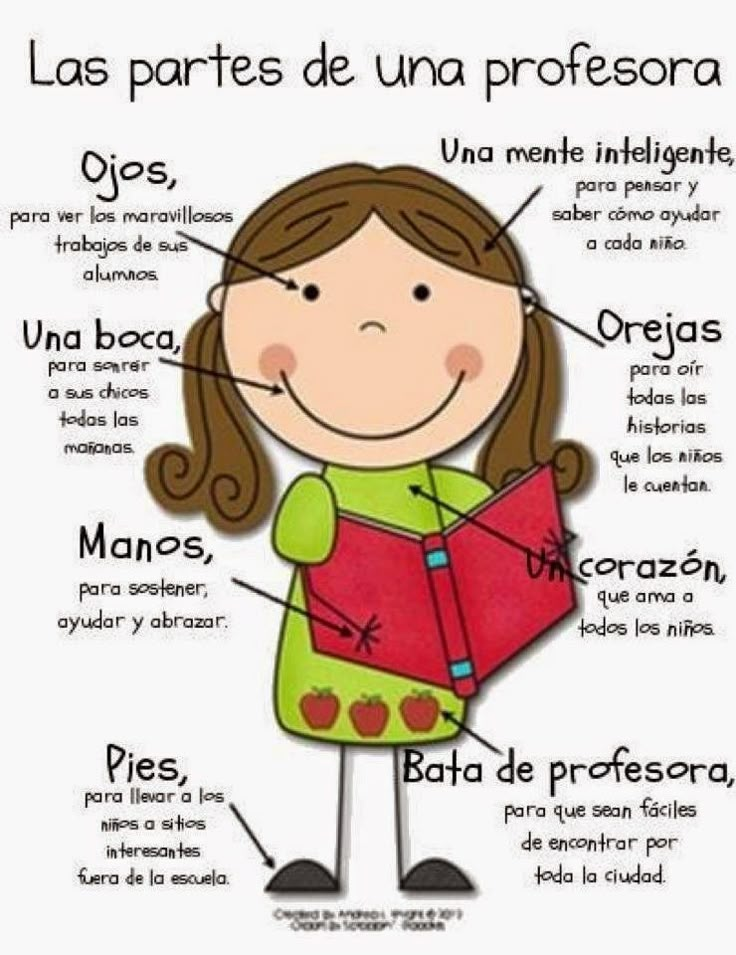 Explain that each person has personal boundaries that should not be violated by uncomfortable questions and personal stories. Explain that there are rules of conduct and decorum.
Explain that each person has personal boundaries that should not be violated by uncomfortable questions and personal stories. Explain that there are rules of conduct and decorum.
For example, in a museum or library it is not customary to talk a lot and loudly, strangers should not be trusted with their problems and joys, and stories about what is happening in the family should be completely stopped. nine0003
- Practice playing silence. This simple method will teach your child to listen to others and focus on inner feelings, develop patience and perseverance.
- Take a break from communication. Tell your child that you want to relax, listen to music, watch a movie, read a book. Invite him to join you, subject to the rules of silence.
You can practice the "hour of silence". Agree in advance with the children that silence is declared in the family from a certain time and come up with a feasible punishment for violators: wash the dishes, wipe the dust, collect toys, throw out the trash, etc.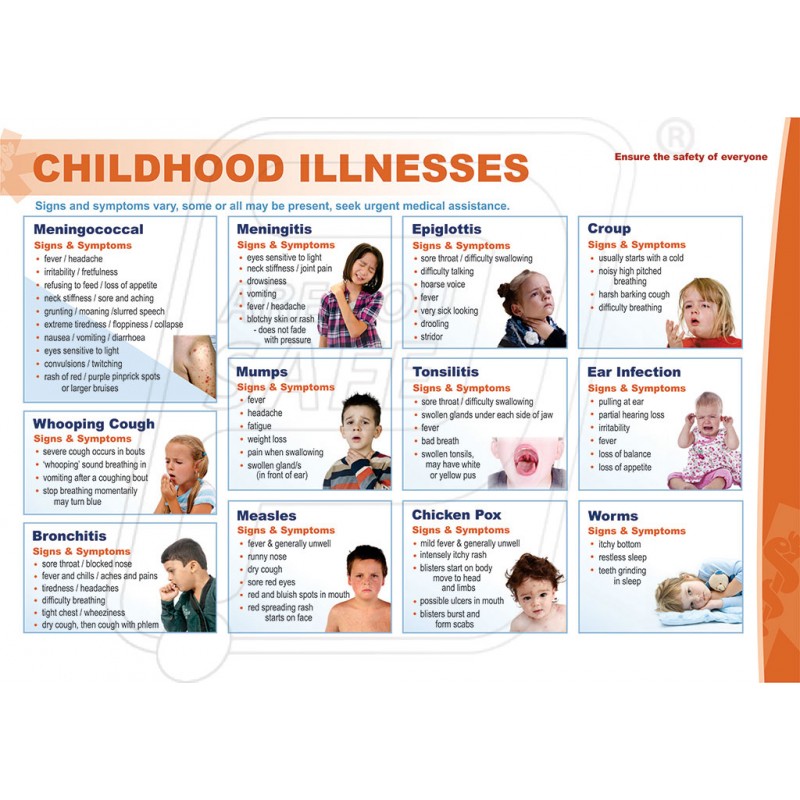 nine0003
nine0003
Advantages and disadvantages
Consider the advantages and disadvantages of an overly talkative baby. Certain advantages include the following:
- A talkative child has the ability to communicate with different people. He is not afraid to get to know each other and talk about different topics, willingly answers questions and offers different solutions.
- You won't get bored with a talkative baby. He talks so much and constantly finds topics for communication that everyone always has fun. The fantasy of a talkative child is developed, as is his speech. nine0180
- A kid who is used to talking a lot has his own point of view on many topics. Moreover, he will not hesitate to express and defend it.
- A talkative child has the power of persuasion. At first, it affects peers and younger in age, but later it will help to influence the opinions of other people.

- People who are talkative in childhood become more successful in adulthood. They easily find friends, acquire the necessary connections, participate in projects and events. Such people are open and sincere, do not hesitate to ask questions and successfully defend their own decisions. nine0180
But talkative children also have their shortcomings:
- Because of the constantly incessant monologue, people around them begin to feel tired. It is sometimes necessary for adults to remain in silence. The talker will not allow this, he will fill the silence with his stories and remarks.
- Endless questions and often ready-made answers tire not only adults, but also children who are next to the talker. The frequency of asking questions in a talkative child is higher than in an ordinary, albeit curious, child. nine0180
The peculiarity of the talker is also that he can ask a question, and while the adult is thinking about the answer, ask the next one.
Therefore, the upbringing of a talker requires "iron" nerves and increased patience.
- Get ready that a conversation with a talkative child is not a dialogue. This is a monologue that is also hard to stop. The kid speaks so enthusiastically that he does not allow adults to insert a word. Mom or dad will have to constantly be on the alert to catch the right moment and speak out. nine0180
- An excessively speaking child is not accustomed to listen, he can only speak. The monologue captivates him so much that it doesn't matter that someone wants to be heard. This behavior often becomes a problem in adult life. After all, one of the main skills of a successful person is the ability to listen to others and listen to their opinion.
- A talkative child does not know how to express himself correctly and logically. Usually the course of his thoughts is chaotic, he interrupts from one topic to another, does not finish his thoughts and does not know how to formulate them.


